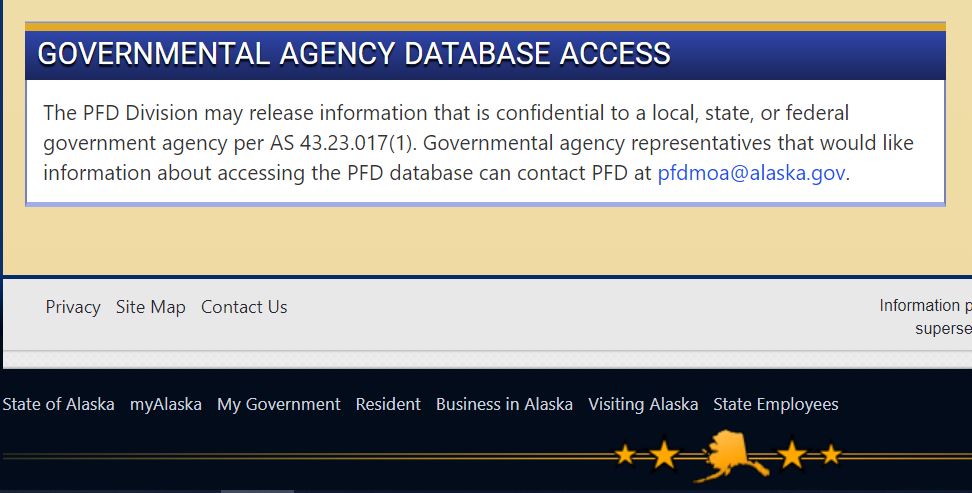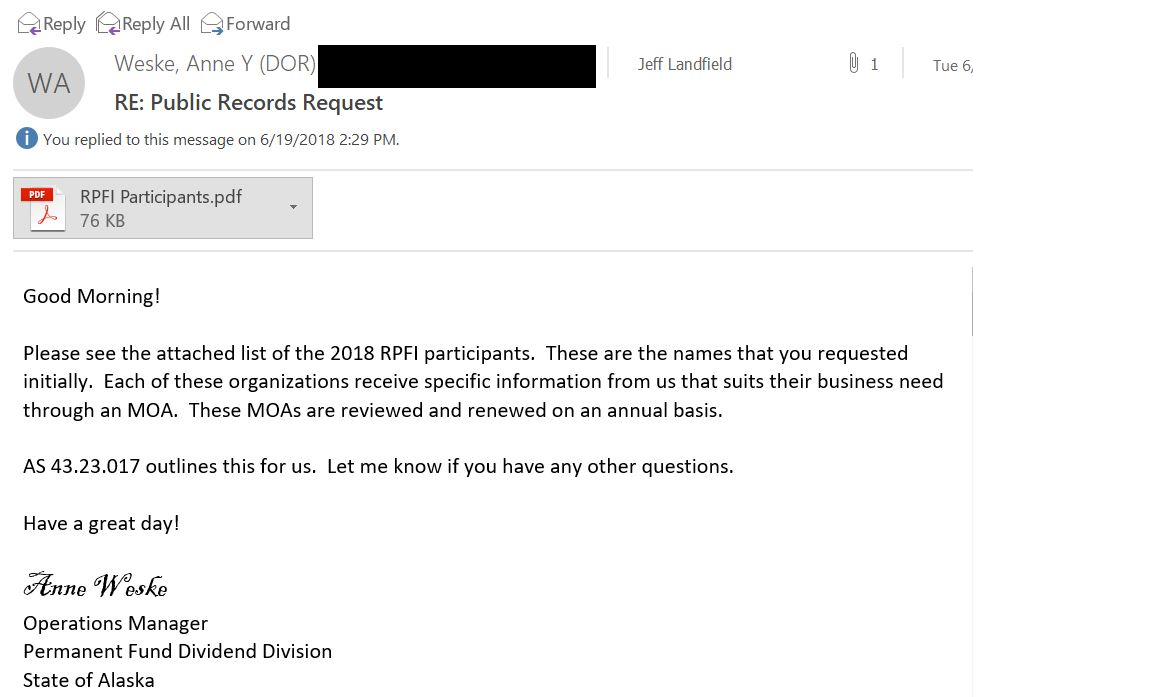In May I received a letter from the Property Appraisal Division of the Municipality of Anchorage (MOA) regarding my residential property tax exemption. The letter said I needed to contact them. When I called, I was told that during an audit they had noticed that my 2017 Permanent Fund Dividend (PFD) application (which is for calendar year 2016) showed a Sydney, Australia address. I explained that I had been traveling around Australia for the majority of 2017. I was told that because of this I would lose my residential property tax exemption for 2017 because I was not living in my home for 185 days in 2017.
I felt this was unfair, but what really struck me was that the Property Appraisal Division of the MOA had access to my PFD application. I called back to ask about this. The woman I spoke with said she was not sure how they had access. She added they have had access to PFD application information for as long as she could remember. They seem to use the access to check if people claiming the residential property tax exemption are living in the home they are claiming the exemption for.
Shortly after I spoke with the MOA I received this letter, confirming they had access to my PFD application.
I wondered why a local government agency had access to my PFD application information, which is managed by a state agency. The “Contact Us” section of the Permanent Fund Dividend Division shows this at the bottom of the page:
Alaska Statue 43.23.017 is actually named “Applicant Information Confidential.” Well, kind of. Here is the language of the statue:
Information on each permanent fund dividend application, except the applicant’s name, is confidential. The department may only release information that is confidential under this section
(1) to a local, state, or federal government agency;
(2) in compliance with a court order;
(3) to the individual who or agency that files an application on behalf of another;
(4) to a banking institution to verify the direct deposit of a permanent fund dividend or correct an error in that deposit;
(5) as directed to do so by the applicant; and
(6) to a contractor who has a contract with a person entitled to obtain the information under (1) – (5) of this section to receive, store, or manage the information on that person’s behalf; a contractor receiving data under this paragraph may only use the data as directed by and for the purposes of the person entitled to obtain the information.
I sent the division a records request asking for a list of all local, state, and federal agencies they share confidential PFD information with, as well as a policy on exactly what information these agencies have access to. I was not sure what to expect. What I received was surprising. According to the information they gave me, the division shares confidential PFD information with 83 different local, state, and federal agencies! They also share the information with Alaska Senators Lisa Murkowski and Dan Sullivan. The PDF of the full list of agencies can be seen here:
As far as the explanation for what information is shared, all I received was what is in this email. I redacted the email address of the sender (some of us care about other peoples privacy).
Nearly every city and borough in Alaska has access. Some of the other agencies that stand out are Homeland Security Investigations, Joint Advertising, Market Research and Studies (whatever that is), and the Legislative Affairs Agency.
PFD applications contain Alaskans’ social security numbers, addresses, banking information, information about an applicant’s out-of-state vacations, and more. How many individuals in these agencies have access to this information? Hundreds? Thousands? Are there protocols in place to prevent someone from inappropriately accessing or downloading the data?
Imagine if someone had the social security numbers and addresses of every Alaskan that applied for a PFD. How much would that information be worth? Considering recent data breaches of companies like GCI, Target, Equifax, and many others, Alaskans should be aware of just how many people have access to their confidential data. In a state where so many of us value privacy, virtually nobody seems to realize how much of our information is being shared with so many government agencies.
I plan on contacting many of these agencies to find out why they need access to the data and what they are doing to ensue the data is safe from theft. I will also be contacting legislators to see if they are aware of this and whether or not they agree with it.
More to come.









Holy moly. We wonder why our data is getting breached…
Thank you for sharing this information! I will be interested to hear how these agencies respond to you!